Environmental Groups Sue BP Under Clean Water Act
Landmark act could be used by the federal government to recover billions in fines, send people to jail
BP PLC is facing a citizen lawsuit filed under the Clean Water Act by three environmental groups for the ongoing Deepwater Horizon oil spill, the nation’s worst, in the Gulf of Mexico.
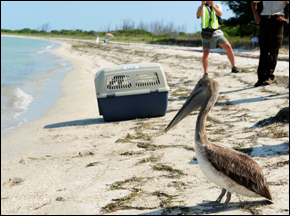
At the end of last month, the Gulf Restoration Network, Louisiana Environmental Action Network and Environment America sent a formal notice letter to BP that charges the company with violating the act because it has discharged oil into the gulf, and failed to measure the oil’s plume and flow and to remove the oil.
“Remove does not mean hiding oil beneath the sea surface or leaving it to naturally decay,” Joel Waltzer, an attorney representing the groups, said in a news release. “Remove means take away. If BP can remove oil from miles beneath the earth, under 5,000 feet of water, it can remove oil plumes from the gulf.”
Other groups, not involved in the lawsuit, are also looking to use the act ensure that those responsible will pay billions in fines and possibly spend time behind bars.
The groups hope to force BP to provide more accurate information on the amount and location of oil spilled into the Gulf of Mexico, disclose all technologies that may be used to remove the oil, and remove the oil by as quickly as possible.
A similar, smaller-scale oil spill helped spur passage of the Clean Water Act in 1972. The landmark legislation was signed into law following citizen outrage over a 1969 drilling platform blowout off Santa Barbara, California that spilled roughly 100,000 barrels into the ocean—a small fraction of the 22 million to 35 million gallons leaked by the Deepwater Horizon disaster so far—and a 1969 fire on Ohio’s massively polluted Cuyahoga River, which had caught fire several times before.
The act provides regulatory and non-regulatory methods to reduce pollution discharges into U.S. waterways, to fund wastewater treatment and to manage polluted runoff. Its goal is to restore and maintain the nation’s waters for “the protection and propagation of fish, shellfish, and wildlife and recreation in and on the water.”
The act also gives private citizens who are affected by violations the right to sue in federal court after filing a 60-day notice of intent to sue with the violator and government environmental agencies. Citizens can seek a court order to mandate compliance with the law and with all permit requirements, as well as mitigation of the harm caused by violations of the act.
The Clean Water Act was strengthened in 1990 through the Oil Pollution Act (OPA), which was passed in the wake of rising public anger over 1989’s Exxon Valdez tanker spill in the Gulf of Alaska, which spilled about 10 million gallons of crude oil into Prince William Sound. OPA gave the U.S. Environmental Protection Agency more power to prevent and respond to catastrophic oil spills, and set civil and criminal penalties for spills. In addition, the OPA created a trust fund financed by taxing imported and domestic barrels of oil to pay for cleanup when the responsible parties can’t or won’t pay.
Some legal experts believe the federal government could use the Clean Water Act to levy up to $4.7 billion in fines against the companies responsible for the oil spill in the gulf, according to McClatchy Newspapers. While BP owned the well and the oil, the rig is owned by Transocean Ltd., a global offshore drilling company.
All drilling in the Gulf of Mexico is covered by a single, general discharge permit that bans discharges of several toxic chemicals found in oil, according to McClatchy. The permit also discourages the use of dispersants like those BP has used to break up the oil on and under the water’s surface.
“Failure to comply with the permit is a violation of the Clean Water Act,” Tracy Hester, director of the University of Houston’s Environment, Energy and Natural Resources Center, told McClatchy. “It would be the foundation of any enforcement action. There are tons of lawyers looking at this.”
Responsible parties could face jail time, according to the Christian Science Monitor.
“It’s almost certain that [BP, Transocean, or other firms involved in the spill] will be found guilty of something,” William Snape, a professor at the American University school of law, told CMS. “I’d say the odds are greater than 50-50 that someone will get jail time or a probationary sentence.”
U.S. Attorney General Eric Holder toured the site of the spill last week and announced that his office is investigating the disaster for potential violations of the Clean Water Act, Oil Pollution Act, Migratory Bird Treaty Act and Endangered Species Acts, along with other criminal statutes.
“We must … ensure that anyone found responsible for this spill is held accountable,” Holder said. “That means enforcing the appropriate civil—and if warranted, criminal—authorities to the full extent of the law.”
Sources: Environment News Service, McClatchy Newspapers, Christian Science Monitor, U.S. Attorney General Eric Holder

Circle of Blue provides relevant, reliable, and actionable on-the-ground information about the world’s resource crises.

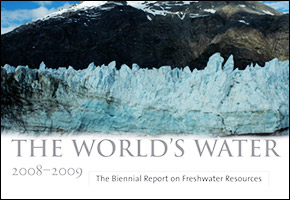

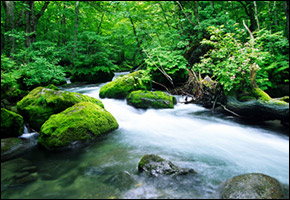


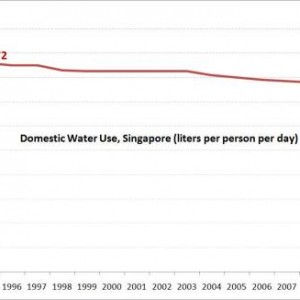
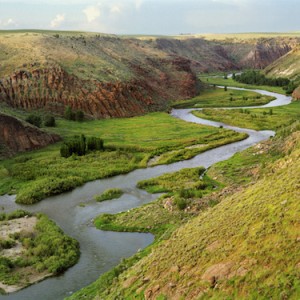
Please read the following on the legal requirement of our federal government to provide the clean-up for the oil spill.
It is time to demand an appropriate scale of response to this disaster as dictated by Oil Pollution Act.
http://donovanlawgroup.wordpress.com/2010/06/05/the-oil-pollution-act-provides-for-the-federalization-of-the-bp-oil-spill/
The BP oil disaster is one that we will be cleaning up for years to come and their is no better time to reevaluate what kind of restrictions are put in place to protect our waterways. It may sound crazy but industries have been dumping toxic chemicals into the same water that we drink from for years. Supreme court decisions continue to loosen regulations pertaining to clean water and the time has come to speak up. We need to pass new regulations to protect our water and our citizens from the many problems that come in affect from water toxicity. Fortunately, a new version of the clean water act is currently making its way through congress and we need to show our support. Get the word out and tell your congressman that you support the Clean Water Act.
Dear Sirs,
I am seeking an attorney to sue BP on my behalf.
I made two attempts to get a claim from the GCCF, un-successfully. I am a self employed plumber and have been for 20 years.
My claim was for $86K. $16K in income losses, $70K for getting stuck in prison, on a traffic warrent, for 3 days with no money to get out! It was only $350 to get out. The way I figure it, BP owes me for 3 days of freedom. Pro Rata at what they make a day is roughly $.82B. You can have 33% but you MUST file before 8 Apr2 011.
I’m in a hurry to file and don’t have any money because I’m bankrupt from the Oil Spill. They denied my emergency claim and are taking their sweet time on my interum claim.
Reply to me right now, PLEASE,PLEASE,
DerekKnorr@hotmail.com